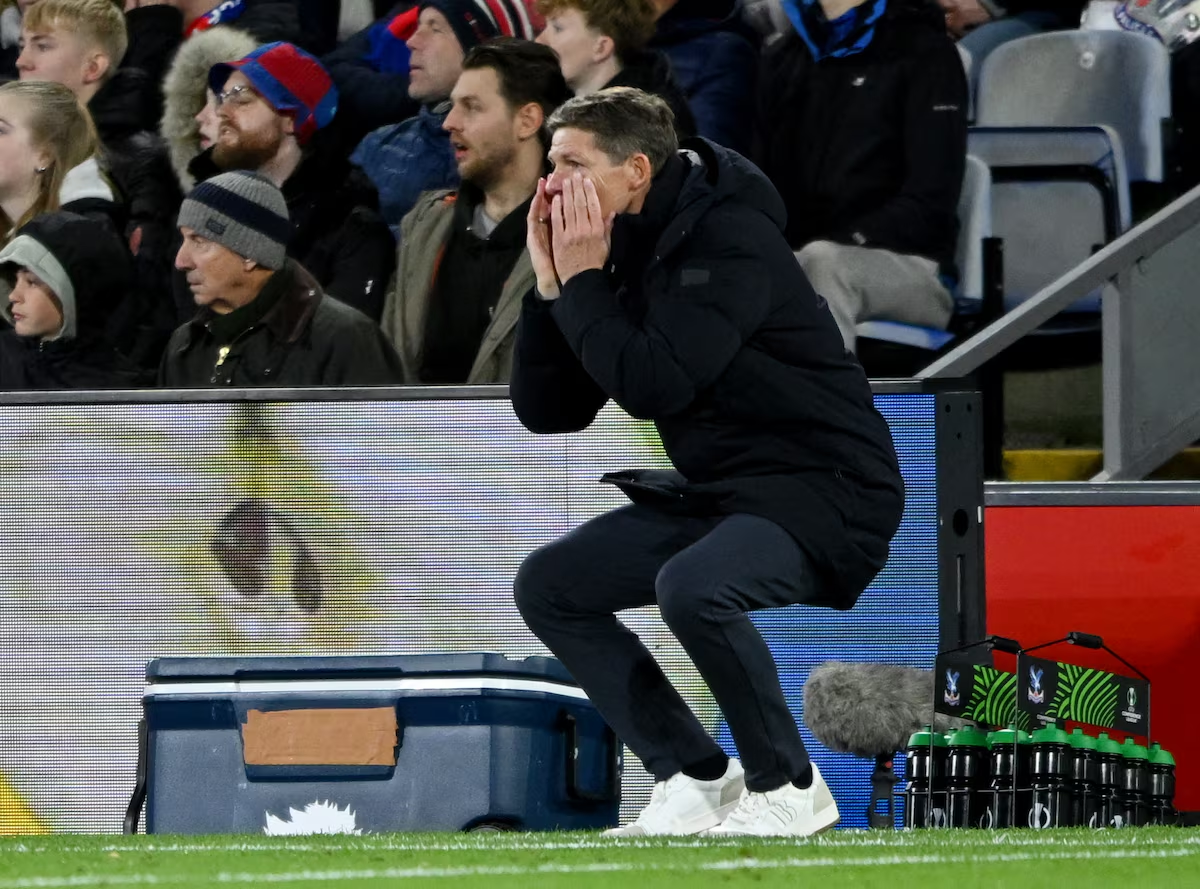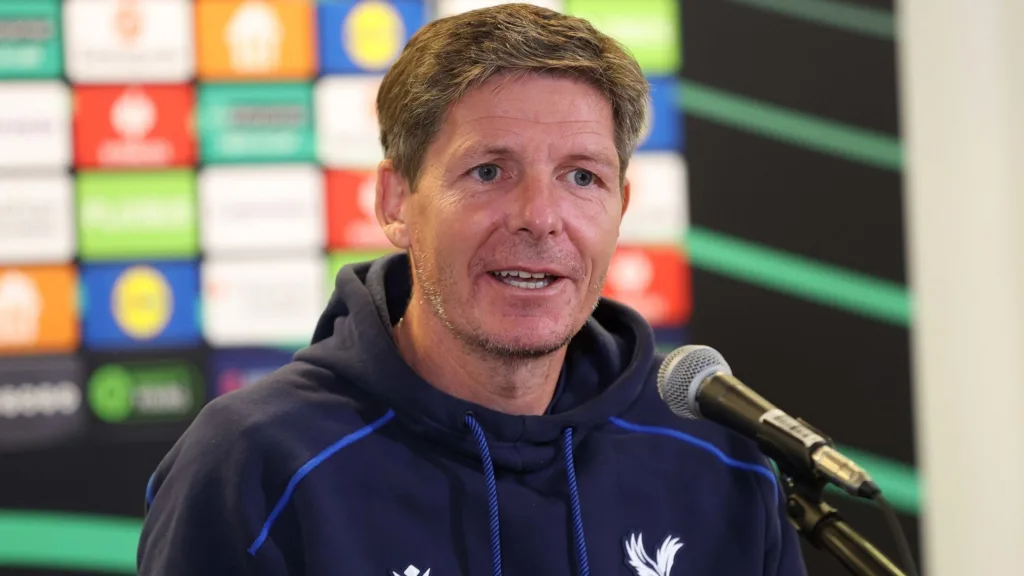In a night that was meant to mark a milestone for Crystal Palace, the Premier League club instead found themselves enduring a painful reality check.
Their first ever European home match at Selhurst Park — in the group stage of the UEFA Europa Conference League — ended in a 1-0 defeat to Cypriot side AEK Larnaca, with manager Oliver Glasner labelling the result a “necessary humbling.”
From early on, Palace held expectation and favouritism firmly in their hands. The Eagles entered the match buoyed by strong league form and a growing belief that European competition was now within their grasp.
What instead transpired was a series of familiar flaws exposed: possession without penetration, chances created but not converted, and a solitary defensive error yielding a decisive goal. Glasner did not shy away from admitting the magnitude of the setback — and, more crucially, its possible benefits.
“It’s disappointing, it’s a frustrating night,” Glasner told reporters, “but maybe the whole environment needed it to stay humble.” He went on: “You are always told when you play in the Premier League you win the Conference League. Stay humble. I don’t know if any debutant is able to win the competition. I don’t think so.”
The goal that sealed the result arrived early in the second half, as Larnaca’s Riad Balic struck from close range, capitalising on a loose pass and a momentary lapse in concentration by the Eagles. Palace dominated possession — 67% at one count — yet struggled to manufacture meaningful chances or break down their opponents’ disciplined block.
As one report observed, Palace mustered just one shot on target in the match despite having the lion’s share of possession.
For a club steeped in ambition and pride, this result stings more than most. It underlines that success in domestic competition does not automatically translate into mastery of European fixtures. Palace must now reconcile the fault lines in their game with the demands of continental competition.

Glasner’s message is clear: this is less about embarrassment, more about education. “We will learn from it, the players will learn,” he said.
What makes the defeat all the more striking is the context. It was the first time Palace hosted a European fixture at Selhurst Park in their 101-year history. Such occasions usually bring euphoria, but instead the mood shifted rapidly from expectation to unease.
The visiting Larnaca side, currently fifth in the Cypriot league, showed little deference and maximum resolve — a reality their bewildered hosts found difficult to cope with.
In his post-match reflections, Glasner singled out efficiency in the final third as the key issue. “We didn’t score from the chances we had. We made one mistake and they punished us. I think that’s the summary,” he said.
He emphasised that scarily recurring theme of possession without threat: “We have a free finish inside the six-yard box… Then we hit the head of the goalkeeper… We have a set play where we are completely free. We missed the goal… we had 13 shots or 14 inside the box and just one was on target.”
The response to this result will be critical. On the surface, it could be written off as one of those anomalous European nights. But beneath the surface, it reveals structural issues: a reliance on possession, a hesitancy in decisive moments, and perhaps an overconfidence brought by recent domestic success.
Glasner, who has previously stressed the importance of sustainable development rather than chasing fireworks, clearly sees the defeat as a pivot point rather than a catastrophe.
He said the club and players must now internalise the lesson of humility. In doing so, Palace can recalibrate their mindset. For a club that recently lifted its first major trophy — the FA Cup — and broke new ground in European contests, this is a chance to ground their ambition in realism.
Glasner warned against assuming that Premier League stature translates automatically into European dominance. “Stay humble,” he repeated.
Equally, the supporters and the wider club environment need to absorb the message. There may be excitement around a European campaign, but expectations must align with the harsh reality that this competition offers no guaranteed path to progress.


